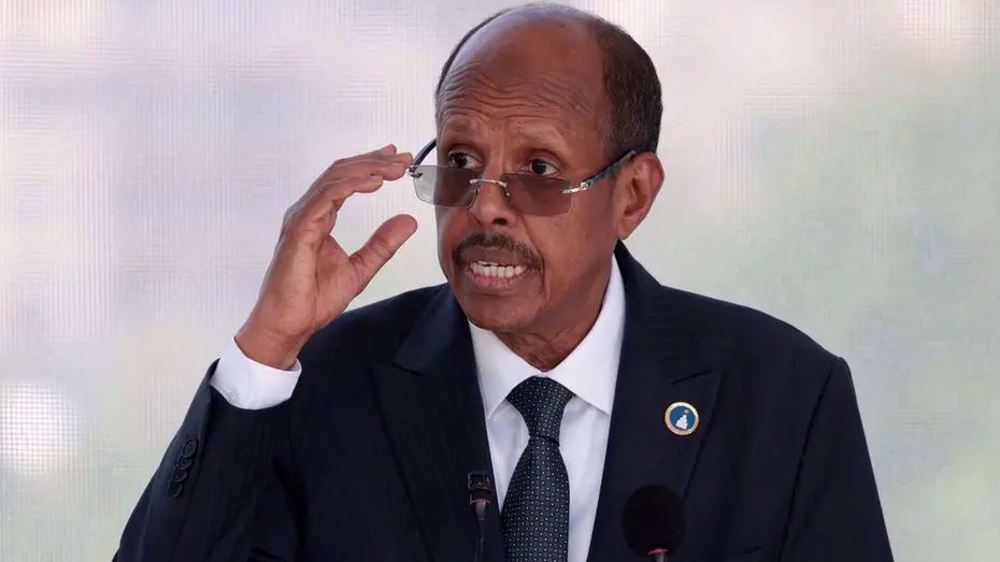Uganda MPs brawl over presidential age limit bill for second day
Scuffles have broken out for a second day at Uganda’s parliament during debates over a highly controversial bill that could potentially grant President Yoweri Museveni another term in office.
Ugandan lawmakers on Wednesday got engaged in physical violence while protesting a proposed age limit amendment bill that would scrap the presidential age limit.
Some MPs exchanged blows and kicks while others used microphone stands as weapons in the brawl; and at least two female lawmakers were carried out of the parliament after collapsing, according to Reuters.

Several lawmakers were forcibly evicted from the parliament following the chaos, which also saw objects being thrown across the legislative chamber.
Uganda’s constitution bars anyone over the age of 75 from standing as a presidential candidate, making the 73-year-old Museveni — who has been in power for more than three decades — ineligible to seek re-election at the next polls in 2021.
Fisticuffs first erupted on Tuesday, prompting Uganda’s communication regulator to ban live broadcasts of the events, which “are inciting the public, discriminating, stirring up hatred, promoting a culture of violence... and are likely to create public insecurity.”
The ban, however, was viewed by critics as a deliberate blackout on opponents of the bill.
Robert Ssempala, with the Human Rights Network for Journalists-Uganda (HRNJ-Uganda), said banning live broadcasts would “shut out Ugandans and keep them in the dark on the age limit debate.”

Anti-government protests were also staged by students and opposition activists in some parts of the country over the past days, and three local journalists were taken into custody while covering the rallies.

Museveni, who has been at the helm of the country since 1986 and is credited with restoring peace and stability to the African nation, won re-election last year in a poll marred by allegations of vote fraud and intimidation by security forces.
Although he has warned in the past that Africa’s problem was the leaders “who want to overstay in power,” he has lately said he was speaking about unelected African leaders.
Israeli sniper in Chile could face criminal case over war crimes in Gaza
Young Iranian robotics specialists shine at IWISE Global Final 2026
Bangladesh poll result reflects public rejection of governance failures, not party loyalties: Analys
VIDEO | Iran holds 40th day memorial service for victims of US-orchestrated coup
Back to SAVAK days: Pahlavi monarchist violence surges against diaspora opponents
Russia threatens to deploy navy to protect vessels from ‘Western piracy’
Iranian Navy chief: Extra-regional fleets in West Asia 'unjustified'
'Die alone or with your family': Lebanese man killed after Israeli call










 This makes it easy to access the Press TV website
This makes it easy to access the Press TV website